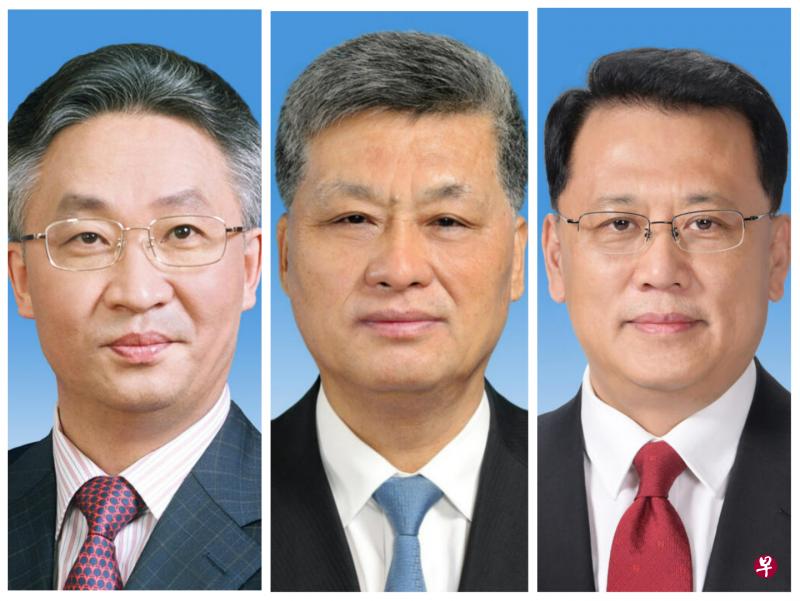
Twenty of the Communist Party of China Sunday (October 23), scholars ended, scholars came to an end.According to analysis, many of the people who have been promoted this time came from the aerospace and aerospace field. It is obvious that new types of technical bureaucrats have been reused, which can effectively stimulate national emotions and are also related to competition between China and the United States.
Li Cheng, director of the John Sangton China Research Center of the Brookings Society in the United States, analyzed the discussion of the Changfeng Foundation in Taipei on the 23rd.See, the CCP's high -level officials have opened a lot of new technical bureaucrats.
For example, Ma Xingrui, Zhang Guoqing, Yuan Jiajun and others have the background of aerospace, aerospace or military industry background.
Li Cheng described these background officials as "universe gangs", and believed that on the one hand, they did not involve too many places forces, and they could use aerospace technology international competition to stimulate national emotions and enter the Chinese Communist Party's power structure to meet current political needs.Essence
He judged that China did not pay so much attention to the economy in the next five years, but focused on security and political stability. In particular, Beijing has identified the United States to subvert China, and Sino -US relations will worsen in all directions in the future.
In the field of military and security, Li Cheng believes that the risk of military conflicts in the Taiwan Strait, the South China Sea, and the East China Sea continues to rise in the future. In particular, He Weidong, who was former commander of the Eastern theater, served as the vice chairman of the Central Military Commission.Photo by Taowei.
Wu Yushan, an academician of the Taiwan Central Research Institute, who also attended the discussion, mentioned that the practice of the Chinese Communist Party's political inheritance in the past usually entered the Standing Committee of the Politburo with young leaders to designate the highest leadership candidates and granted its duties.
He believes that in addition to the official Chinese official, most of the high -level blood changes still follow the practice of age restrictions, but you cannot see that "Chujun" is listed.For example, Ding Xuexiang, the youngest member of the Politburo Standing Committee, is 60 years old. Even if five years later, the 21st National Congress of the Communist Party of China (21st) took over the big position, I am afraid that he could not serve more than one session.
Therefore, Wu Yushan studied and judged that the official Chinese officials did not designate any successor this year, and it can also be inferred that he will continue to be delayed at the 21st National Congress.
But he also proposed that from the perspective of the thinking logic and historical process of the Communist Party of China, when the leader's power is in the hands, it will not increase the risk of war, and the risk will be the highest when the leaders' power is challenged.
Wu Yushan believes that if Chinese officials intend to fight for the fourth term at the 21st, the domestic pressure will be greater. At that time, it will be harder to the outside world.
He also described that Taiwan is now "being in the abyss and thin ice", and as the Sino -US economic war and scientific and technological war are continuously deepened, Beijing will gradually adapt to decoupling with the West.It will greatly reduce the risk of war.
It is worth noting that in the list of new members of the Communist Party of China, Liu Jieyi, the current director of the Taiwan Affairs Office of the State Council, and three other deputy directors.This indicates that there will be a wave of blood for the Taiwan system.
Wu Yushan's research and judgment, for Beijing, Taiwan's issue is highly international, not simply cross -strait issues. Therefore, people with international vision must be allowed to deal with cross -strait issues.
He said that Wang Yi, the current foreign minister of Mainland China, was the director of the National Taiwan Office. This time, he entered the Politburo and was expected to take over as the director of the Office of the Central Foreign Affairs Working Committee. He believes that his influence and connections will also play a role in the Taiwan system.



